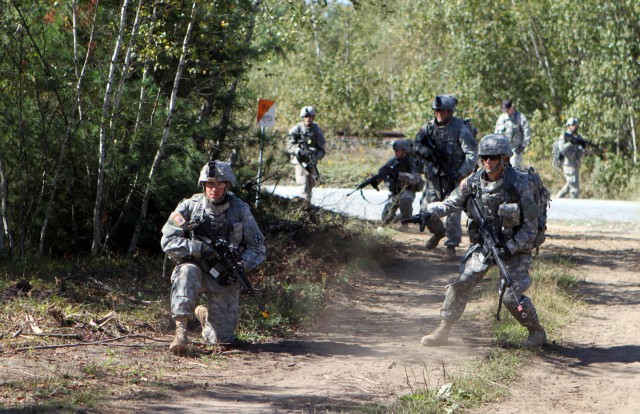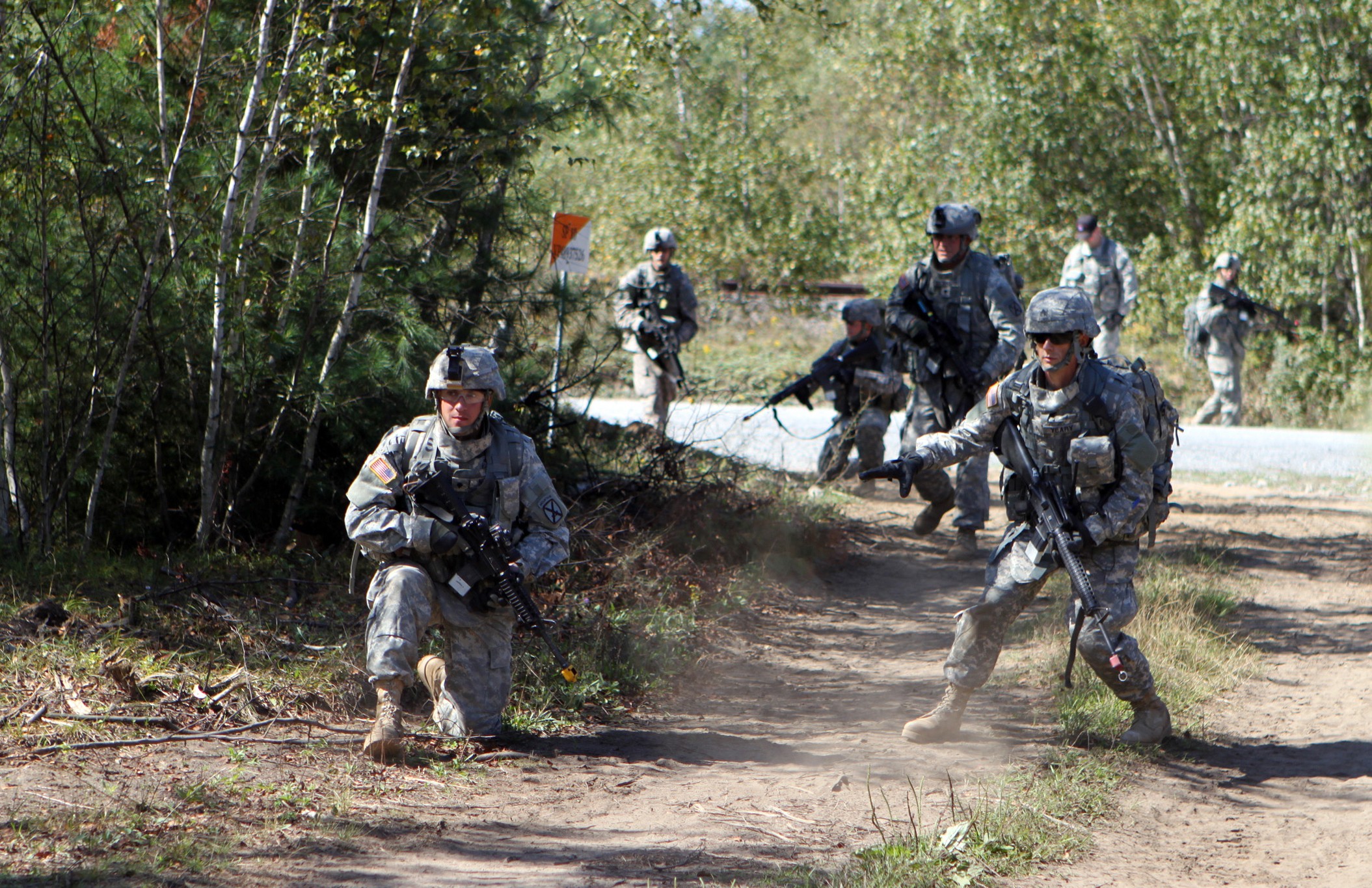Noncommissioned officers are the backbone of the Army; they are held responsible for not only their own actions, but the well-being of their Soldiers and the effective and timely completion of the mission. To ensure they can handle the responsibility given to them, all junior NCOs are required to attend the 15-day-long Warrior Leader Course.
WLC trains and mentors new sergeants, and with the Army's changing standards and technology, the curriculum has changed to ensure training is applicable to NCOs' daily life in the Army.
"There's a lot of good information that Soldiers weren't getting in the past," said Sgt. 1st Class Daniel Brown, chief of training for the Noncommissioned Officer Academy at Fort Drum. "They will be learning things that their units don't know yet because the Army is going through a lot of changes pretty quickly."
The overall focus of the recent changes are to equip NCOs with skills needed for today's Army, teach them to be self-sufficient and promote attention to detail.
NCOs attending WLC will be expected to complete three written exams on warfighting, training and leadership. The addition of exams not only provides Soldiers with valuable information, but also teaches them to retain information and to be accountable for their own proficiency in each area.
"It's a lot more material that they have to be held accountable for and study, with the addition of written exams," Brown said.
According to 1st Sgt. Timothy Trundle, Fort Drum NCO Academy deputy commandant, Soldiers scheduled to attend WLC will be expected to complete individual training in self-development before classes.
"We are now giving NCOs the information they have always needed but were never taught," Trundle said.
According to Trundle, things that were not taught until later in a Soldier's career are being taught when it is really needed, such as how to write in military standard style or how to conduct a briefing. By teaching new NCOs these skills, they can perform their duties more effectively.
"With more technology advances, we can get more information in, and it's more self-paced," Trundle said. "The intent is to have better-educated NCOs."
Due to the technology that has become so prevalent in Soldiers' lives, land navigation will no longer be taught at WLC.
According to Brown, drill and ceremony used to be a major part of the Army, but with the wars in Iraq and Afghanistan, it fell to the wayside. By bringing it back to the NCOs' training, it promotes esprit de corps and attention to detail.
NCOs attending WLC also will learn how to lead Soldiers in Physical Readiness Training routines, as opposed to the standard Physical Training routines. PRT focuses on movements one would make in combat situations, instead of just push-ups, sit-ups and long runs. It is designed specifically to make Soldiers not just strong enough to pass a PT test, but strong enough to handle the rigors of real combat.
By training NCOs to be proficient in vital Army skills, WLC is ensuring that the Army as a whole continues to function well and adapt to the changes presented.


Social Sharing